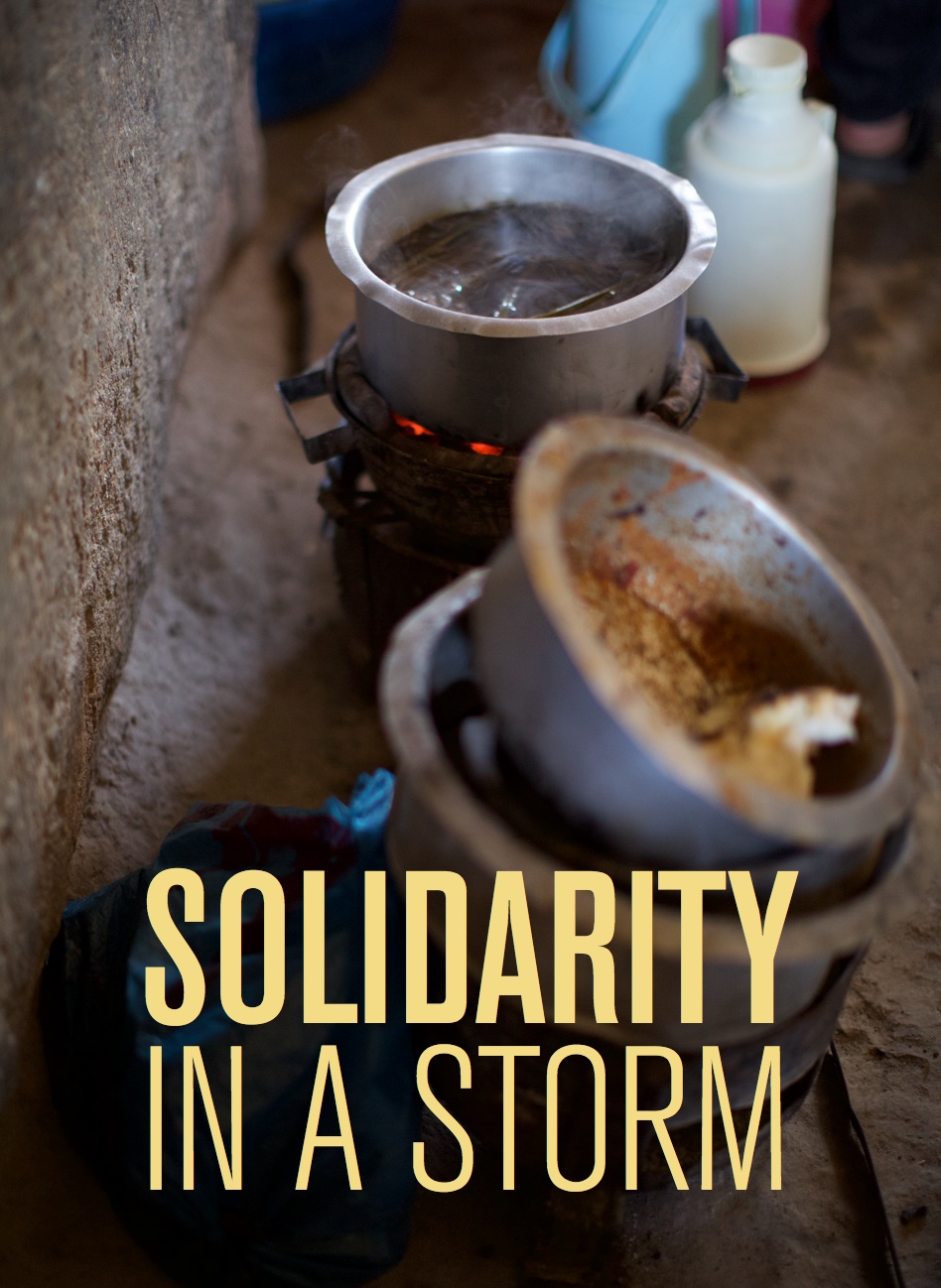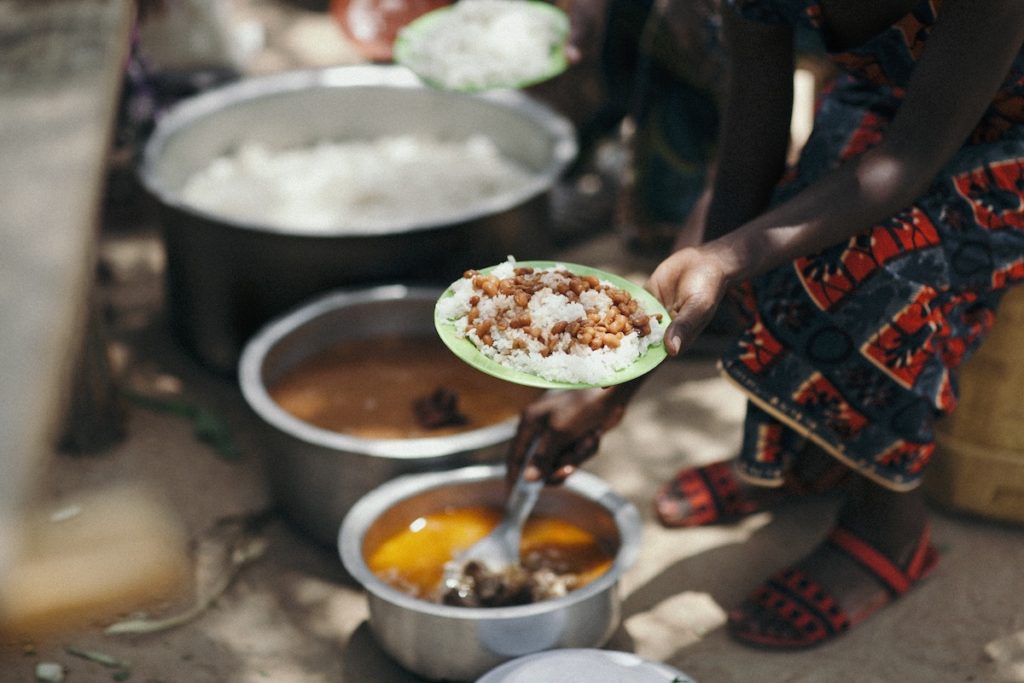
08 Mar Solidarity In A Storm
One of the significant causes of food shortages in East Africa is a climate that is prone to drought and often too hot and dry to grow food. Yet somehow God used ice, snow, and freezing temperatures to draw the Sanderson family deeper into solidarity not only with their local neighbors but with their East African brothers and sisters on the other side of the world.
Solidarity In A Storm by Sarah Sanderson
This year, my family began Rice & Beans Month a little early. Not by choice, but by necessity. In the middle of February, an ice storm led to weeklong power outages for more than a quarter of a million households where I live near Portland, Oregon. Some lost power for ten days or more. At our house, we had to toss most of the contents of our refrigerator and freezer. Our car was on empty, and none of the gas stations near us had power to pump. We walked to the nearest grocery store, where a generator ran a few lights and registers, but they had tossed the contents of their cold cases, too. Much of the shelf-stable food in the dimly lit store had already been grabbed. We purchased a few cans of soup to carry home for lunch, but that night for dinner—and for several meals afterward—we dug into our supply of rice and beans.
Throughout the entire six days our home was without power, I found myself thinking constantly about those less fortunate than me. How are people without gas stoves getting through this? I wondered. What about people who don’t have fireplaces, or extra coats and blankets? What is it like for people who live like this all the time? In my everyday life, I try to be mindful of the less fortunate, but the truth is that I can go days or even weeks without really thinking about the lives of the unhoused or impoverished. Shivering in my cold house for six days changed that. The experience moved me from sympathy to empathy. It transformed my regard for the poor from casual curiosity to genuine concern. This is hard.
“Solidarity with the poor” is one of the stated goals of participation in Rice & Beans Month, and it’s a concept that’s hard to grasp until you actually live it. The Apostle Paul says, “Now you are the body of Christ, and each one of you is a part of it.” But it’s hard to feel connected to people you never see or meet or speak with. One way to get there is by altering the physical experiences of our daily lives. It is in the real stuff of life—the eating and drinking, the putting on coats and turning up the heat and laying our heads on pillows at night—that we come to understand what it means to be human. When those things change, it teaches us, in a way that no blog post or tweet or photograph ever could, how it feels to live another way.

There’s a reason that some of the most charitable people, who give the highest percentage of their income away, are some of the poorest among us. People who understand what it’s like to struggle are moved to compassion for the struggles of others. During the week of the power outages, my entire community mobilized to help each other. People with gas water heaters offered hot showers to neighbors they barely knew. People who got power back earlier in the week invited others to come use their washing machines. People with trucks and chainsaws drove around helping others clear branches. A popup food pantry appeared at the local high school. The community organized potluck suppers so those without means of cooking could get a hot meal. Everyone pitched in because everyone had been affected, and everyone knew that the struggle was real.
There is no shortcut to solidarity. You can’t keep on living the way you always have and proclaim to understand the life of another. Solidarity requires change. But when our lives do change, when we do come to understand with empathy the lives of others, it can be a powerful motivator for acting with compassion. Living through a disaster can give us that new perspective, a kind of forced solidarity. But we can choose solidarity, too. When we change what we actually subsist on, the food we place into our mouths, it changes us. Eating rice and beans changes us. Mouthful by mouthful, we come to understand what it means to be the Body of Christ.
The past year has been hard for all of us. In my community, we’ve lived through three natural disasters in less than twelve months: pandemic, wildfires, ice storm. It might be tempting, then, to skip Rice & Beans Month. To say to ourselves that we’ve had enough hardship, that we deserve every morsel of comfort we can cram into our mouths. But the truth is that we need each other now, more than ever. We need solidarity, both in our local communities and around the globe. We here in America need our brothers and sisters around the world every bit as much as they need us, if not more. Maybe some of them need some of our money. But we need to learn from them, some of them experts on suffering well, about how to live generously—grace under pressure. So let’s choose to learn solidarity now. Before the next disaster strikes, let’s teach ourselves what it means to live as one.
Sarah and her husband, Jeremy, live in the Portland area with their four kids and lead Oak Hills Presbyterian Church. Oak Hills integrates Rice & Beans Month into their yearly Lenten practice, and we are thankful for Sarah’s written reflections on its impact in her family and church community.


